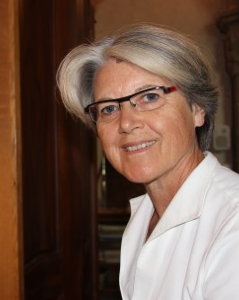Anne-Caroline Prénat (Switzerland)
Anniversary Recital: Admission £10 (Students in full-time education free)

Six Pieces: Louis Marchand
Dialogue en Ut majeur
Fonds d’orgue du 1er ton
Récit
Basse et Dessus de trompette
Tierce en taille
Dialogue
Two Pieces: J S Bach
Choral prelude on O Mensch bewein dein Sünde Gross, BWV 622
Prelude and Fugue in E minor, BWV 548
Interval
Two Pieces: César Franck
Prélude, Fugue et Variation
Cantabile
Sonata n°6 in D miner on Vater Unser im Himmelreich: Felix Mendelssohn
(Choral, Variations 1, 2, 3, 4, Fugue, Andante)
Toccata in G major: Théodore Dubois
This year’s anniversary recital contrasts French and German composers; and the two halves of this recital offer contrasting views of the eighteenth- and nineteenth-century organ.
The first half of the programme reminds us of the celebrated “Battle That Never Was” between Louis Marchand and J S Bach. Marchand, who was court organist at the Chapelle Royale in Paris, had by 1717 completed a much-admired three-year tour of Germany. At the end of it he was challenged to a musical “duel” with J S Bach but his courage evidently failed him and he didn’t turn up. That’s the possibly partisan German explanation anyway. We have a rare chance to restore the balance today, and to hear the Binns organ in repertoire that its builder would never have expected to be heard on it.
Binns, a follower of the German builder Schulze, would certainly have expected to hear Bach played. We are to hear one of his most intense choral preludes, followed by his largest Prelude and Fugue; the Fugue is the one nicknamed “the Wedge”.
The second half takes us more into J J Binns’s mindset. We hear two mid nineteenth-century pieces by César Franck, here at his most contemplative. And we follow this with music by the man who revived interest in Bach and who kickstarted the revival of organ music in this country as a serious business. Mendelssohn had played Bach’s music on the large new organ at Birmingham Town Hall, and he composed six noble sonatas for the English market, of which we are to hear the last.
Dubois’s cheerful Toccata completes this survey of the music of Germany and France.
